
Loretta Young was an American actress. Starting as a child, she had a long and varied career in film from 1917 to 1953. She received numerous honors including an Academy Award, two Golden Globe Awards, and three Primetime Emmy Awards as well as two stars on the Hollywood Walk of Fame for her work in film and television.

Dawn Powell was an American novelist, playwright, screenwriter, and short story writer. Known for her acid-tongued prose, "her relative obscurity was likely due to a general distaste for her harsh satiric tone." Nonetheless, Stella Adler and author Clifford Odets appeared in one of her plays. Her work was praised by Robert Benchley in The New Yorker and in 1939 she was signed as a Scribner author where Maxwell Perkins, famous for his work with many of her contemporaries, including Ernest Hemingway, F. Scott Fitzgerald and Thomas Wolfe, became her editor. A 1963 nominee for the National Book Award, she received an American Academy of Arts and Letters Marjorie Peabody Waite Award for lifetime achievement in literature the following year. A friend to many literary and arts figures of her day, including author John Dos Passos, critic Edmund Wilson, and poet E.E. Cummings, Powell's work received renewed interest after Gore Vidal praised it in a 1987 editorial for The New York Review of Books. Since then, the Library of America has published two collections of her novels.
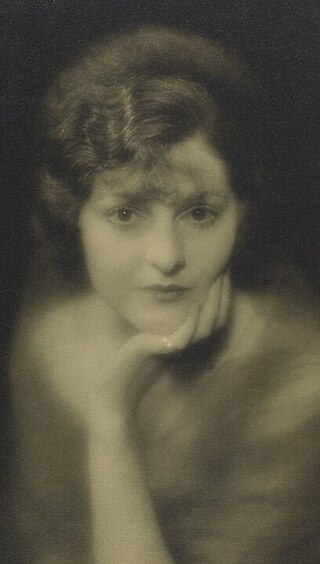
Eleanor Audley was an American actress with a distinctive voice and a diverse body of work. She played Oliver Douglas's mom, Eunice Douglas, on the CBS sitcom Green Acres (1965–1969), and provided two Disney animated classics with the voices of the two iconic villainesses: Lady Tremaine, Cinderella's evil stepmother in Cinderella (1950), and Maleficent, the wicked fairy in Sleeping Beauty (1959). She had roles in live-action films, but was most active in radio programs such as My Favorite Husband as Liz Cooper's mother-in-law, Mrs. Cooper, and Father Knows Best as the Anderson family's neighbor, Mrs. Smith. Audley's television appearances include those in I Love Lucy, The Dick Van Dyke Show, Mister Ed, Hazel, The Beverly Hillbillies, Pistols 'n' Petticoats, and My Three Sons.

Alice Margaret Ghostley was an American actress and singer on stage, film and television.

Marie Ault was a British character actress of stage and film.

Lady Godiva Rides Again is a 1951 British comedy film starring Pauline Stroud, George Cole and Bernadette O'Farrell, with British stars in supporting roles or making cameo appearances. It concerns a small-town English girl who wins a local beauty contest by appearing as Lady Godiva, then decides to pursue a higher profile in a national beauty pageant and as an actress.
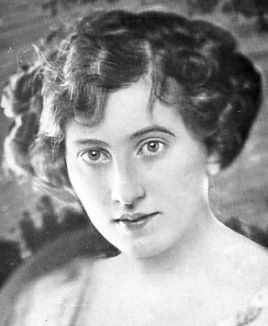
Pauline Theresa Moran billed as Polly Moran, was an American actress of vaudeville, stage and screen and a comedian.
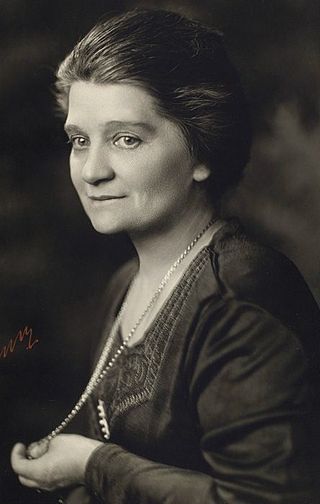
Lucy Beaumont was an English actress of the stage and screen from Bristol.

George E. Stone was a Polish-born American character actor in films, radio, and television.

Dale Fuller was an American actress of the silent era. She appeared in more than 60 films between 1915 and 1935. She is best known for her role as the maid in Foolish Wives.
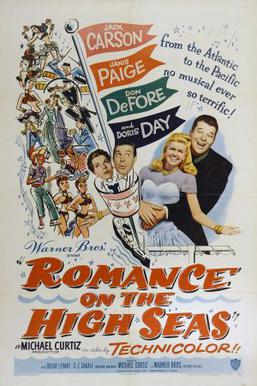
Romance on the High Seas is a 1948 American musical romantic comedy film directed by Michael Curtiz, and starred Jack Carson, Janis Paige, Don DeFore and Doris Day in her film debut. Busby Berkeley was the choreographer. The film was nominated for two Academy Awards, for Original Song for "It's Magic", and Music, Scoring of a Musical Picture.

Rose Constance Gilchrist was an American stage, film, and television actress. Among her screen credits are roles in the Hollywood productions Cry 'Havoc' (1943), A Letter to Three Wives (1949), Little Women (1949), Tripoli (1950), Houdini (1953), Some Came Running (1958), and Auntie Mame (1958).
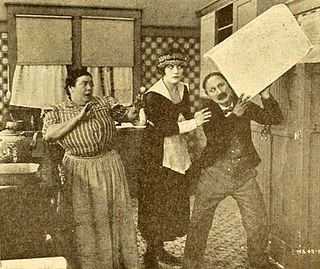
Isabelle Keith was an American actress.

Page Miss Glory is a 1936 Warner Bros. Merrie Melodies cartoon directed by Tex Avery. The short was released on March 7, 1936. The film uses Art Deco backgrounds and character designs.

Byron Palmer was an American movie actor and television host.
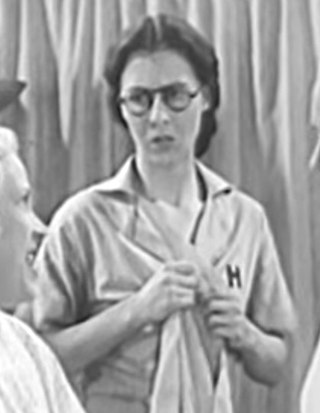
Mary Field was an American film actress who primarily appeared in supporting roles.

Mary Treen was an American film and television actress. A minor actress for much of her career, she managed to secure a plain, unassuming niche for herself in dozens of movies and television shows in a Hollywood career spanning five decades, from 1930 to 1981.

Almira Sessions was an American character actress of stage, screen and television. Born in Washington, D.C., her career took her through all the acting mediums of the 20th century. She appeared in over 500 films and television shows. She worked into her 80s, finally retiring shortly before her death in 1974 in Los Angeles.

Connie Leon was an English singer, dancer and film actress.
Norman Spencer Matthews, was an American musician and songwriter. He is best known for having served as musical director/composer for Warner Brothers' /Leon Schlesinger's Looney Tunes and Merrie Melodies cartoon shorts from 1933 to 1936.



















